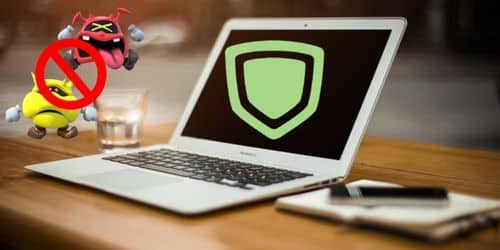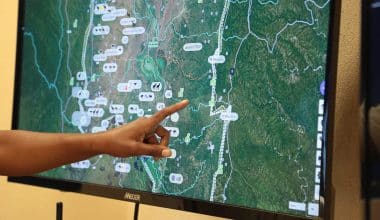A harmful piece of computer code created to propagate from one device to another is referred to as a computer virus. These self-copying threats, a kind of malware, are frequently made to harm an appliance or steal data. It’s consistently unpleasant, interferes with your ability to carry out daily tasks, and frequently calls for a strong remedy to get rid of it. An equivalent threat is a computer virus. Computer viruses infect your applications and files, change your computer’s behavior, or render it completely unusable due to their relentless replication design. In this article, you’ll find a list of free protection software for computer viruses that you need. It also includes 10 ways to protect your computer from hackers and 10 ways to protect your computer from viruses
Protection for Computer Viruses
Having knowledge and tools at your disposal makes you more aware of security threats and less susceptible to threat strategies. Follow these instructions protection for computer viruses:
- Use a firewall and antivirus software.
- Purchase anti-spyware program
- Always keep your anti-virus and anti-spyware programs updated.
- Regularly update your operating system
- Raise the security settings of your browser.
- Stay away from dubious websites
- Download software only from trusted websites.
- Before downloading, carefully assess any free software and file-sharing programs.
- Open no emails from senders you don’t know.
- Delete texts you believe to be spam right away.
Computer viruses can easily enter an unprotected PC. Firewalls keep an eye on the Internet traffic coming into and going out of your computer and protect it from online scammers hunting for unassuming victims. The two most deadly threats on the Internet, spyware and computer viruses, are completely protected by tools like Webroot Internet Security Complete and Webroot Antivirus. They defend every entrance to your computer, stop viruses from getting in, and fight off any virus that tries to open, even the most harmful and cunning varieties.
Despite the fact that there is free antivirus software available, they simply cannot provide the support you need to combat the constant influx of new malware strains. It’s crucial to have current, assured antivirus protection because previously undetected polymorphic malware variants frequently cause the most harm.
Free Protection for Computer Viruses
As you know getting protection for computer viruses is very important. Therefore, I have listed some free protection for computer viruses you can use:
#1. Norton
Norton is my favorite Windows antivirus on the market. You have two months to test it out and decide if it’s suitable for you thanks to its risk-free 60-day money-back guarantee. It contains a cutting-edge malware engine, a plethora of extra features, and cost-effective plans that protect up to 5 devices running all major operating systems.
Against all recognized and new online threats, Norton offers flawless virus detection. In every one of our testing, it was able to recognize every type of malware, from basic threats like viruses to advanced ones like spyware. A clever firewall with a ton of customization options, superb phishing defense, and protection for online banking and shopping are also included.
#2. Bitdefender Antivirus Free for Windows
One of the top free protection for computer viruses is Bitdefender Antivirus Free for Windows; during my testing, its malware scanner had a 100% detection rate. As most of Bitdefender’s scanning and analysis is done in the cloud rather than on your local machine, it has less of an effect on your system’s performance.
The anti-phishing security offered by Bitdefender is also quite good. The built-in security features of Chrome and Firefox browsers, as well as other antivirus software’s anti-phishing algorithms, were unable to detect a large number of phony websites during testing. Only Bitdefender and Norton scored nearly perfect anti-phishing performance out of all the companies on our list.
The lack of further features in Bitdefender’s free edition is a drawback. It provides some of the best real-time, web, and malware defenses available, but that is about all. The other features, including multi-layer ransomware defense, online banking security, a VPN, device optimization tools, a password manager, parental controls, and many more, are only available with Bitdefender’s premium plans.
#3. Avira Free Security for Windows
The outstanding anti-malware engine of Avira Free Security for Windows is completely cloud-based. Avira is hence very quick, light, and system resource-efficient. The majority of the malware files I had previously downloaded to my computer were caught by Avira’s anti-malware engine during my testing, and I had almost no lag when using CPU-intensive programs while scans were in progress.
The interface of Avira is quite user-friendly, and all of its capabilities are clearly listed. In contrast to Bitdefender’s free antivirus, which is quite effective but very basic, it also includes a ton of great supplementary features.
#4. Panda Free Antivirus for Windows
In my testing, Panda’s antivirus scanner picked up far more adware, malware, and ransomware files than Windows Defender did, while still being incredibly lightweight, secure, and easy to use. Real-time protection from Panda also worked incredibly well, stopping the majority of the malware files I attempted to download to my computer.
Panda is a good option for Windows users due to its Rescue Kit, which enables you to download a bootable Panda version to a USB drive and use the USB drive to clean an infected PC and get it back up and running.
#5. Malwarebytes Free
Those looking for an easy-to-use antivirus that they can install and set aside might consider Malwarebytes Free. Its virus scanner functioned admirably in my tests, finding about 90% of the malware files I hid on my PC. It employs a virus database and heuristics to catch all sorts of malware. It did, however, fail to find a few files that were well-hidden yet were found by rival programs like Norton, Bitdefender, and TotalAV.
You also receive a browser plugin in addition to the scanner that guards against a variety of dangers like malware, trackers and advertisements, rip-offs, and PUPs. One of my favorite features of this extension is that all of the security measures are activated by default, so there’s nothing you need to do (but you can easily turn off one or all of the protections).
#6. Kaspersky Free
Kaspersky Free is a free protection for computer viruses you can use for your computer. Similar to Norton and Bitdefender, Kaspersky Free is effective at finding and eliminating malware; during my testing, it found and removed all of the malware samples on my computer. However, unlike TotalAV, Kaspersky’s free plan includes real-time protection, which in my tests also functioned admirably. The Kaspersky interface is pretty nice and makes it simple to access different security scans and settings.
10 Ways to Protect Your Computer from Hackers
Criminal hackers are a dangerous lot; whether they’re part of a well-organized team or just a passionate individuals with a cause, they have the skills and authority to gain access to your most sensitive information. For instance, if a hacker wants to target a specific business, they may easily access a ton of information about that business online. They can use that information to exploit security holes in the organization, which puts the information you’ve trusted them in danger. Here are 10 ways to protect your computer from hackers:
#1. Make Use of a Firewall
Firewalls, or computer programs that erect a wall between your data and the outside world, are already a part of Windows and macOS. Firewalls shield your company’s network against unwanted access and notify you of any incursion attempts.
Before going online, verify that the firewall is turned on. Depending on your broadband router, which also includes a built-in firewall to safeguard your network, you may also buy a hardware firewall from businesses. You can buy an additional business networking firewall if your company is bigger.
#2. Put Antivirus Software in Place
Malware and computer infections are prevalent worldwide. Computers are protected from malicious malware and unauthorized code by antivirus products like Bitdefender, Panda Free Antivirus, Malwarebytes, and Avast. The impacts of viruses can be obvious, such as slowing down or deleting important files on your computer, or they can be less obvious.
#3. Set up an Anti-spyware Program
Spyware is a unique kind of software that covertly watches and gathers data from individuals or businesses. It tends to produce unwanted adverts or search results that are intended to send you to specific (sometimes malicious) websites and is built to be difficult to detect and delete.
#4. Create Strong Passwords
The most crucial step in preventing network invasions is using safe passwords. It is more difficult for a hacker to access your system the more secure your passwords are.
Frequently, longer and more complex equates to more security. Use a password with at least eight characters, a mix of uppercase, lowercase, and computer symbols, and at least one number. With the right tools, hackers can quickly crack simple, brief passwords.
#5. Avoid Spam
Always use caution when opening attachments or clicking links in emails from by unknown senders. Spam inbox filters are getting better at catching the most obvious spam. Keep an eye out for anything that seems or sounds fishy. More sophisticated phishing emails that impersonate your friends, colleagues, and reliable organizations (like your bank) have become frequent.
#6. Create a Computer Backup
If your company does not currently back up your hard disk, you should start doing so right now. Having a backup of your data is essential in case hackers manage to break in and destroy your system.
Once a data breach or loss occurs, always make sure you can recover as quickly as possible. Start with the backup programs included with Windows (File History) and macOS (Time Machine). These utilities can also be used effectively with enough capacity on an external backup hard disk.
#7. Ensure Network Security
Most routers do not have their maximum security settings enabled out of the box. When configuring your network, access the router and enter a password using an encrypted, safe setup. This stops hackers from accessing your network and changing your settings.
#8. Make Use of Two-Factor Authentication
Although passwords are the first line of defense against computer hackers, adding another layer of security increases security. Several websites allow you to set two-factor authentication, which increases security by requiring you to provide a number code and your password when logging in. This code is sent to your phone or email address.
#9. Make Use of Encryption
Make use of encryption. Encryption can stop hackers from accessing any of your data, even if they manage to get into your network and files. BitLocker (Windows) and FileVault (Mac) let you encrypt your whole hard drive, any USB flash drive containing sensitive data may be encrypted, and online traffic can be encrypted with a virtual private network.
#10. For You to Access Some Services or Leave a Comment on Some Websites, You Must Sign In with a Particular Service
Check that the login choice isn’t a cunning phish, and if you’re granting an app permission to carry out a task, make sure you know how to withdraw access once you’re done with it. An easy way to have your main account hijacked by spam is through unused, dated connections between services.
10 Ways to Protect Your Computer from Viruses
Although we all wish to avoid it, the reality is that we cannot continue to do so. Unfortunately, some of us end up with computer infections. Even though there are constantly new viruses, ransomware, hacks, attacks, vulnerabilities, and data theft affecting businesses all over the world on a regular basis, it won’t be long before your company is struck. Here are 10 ways to protect your computer from viruses:
#1. Use a Malware-Detecting App
You can protect your computer from viruses and other malware by installing and maintaining an anti-malware program (malicious software). Free anti-malware software called Microsoft Defender is a part of Windows, and Windows Update updates it for you automatically. You can also pick from anti-malware software produced by different businesses.
#2. Install a Virus Protection Application
The best action is to have reliable protection whether or not you are connected to the internet. Make sure you are secured as soon as you turn on that computer by installing an antivirus program. They only require a small financial commitment.
#3. Download and Install Anti-malware and Anti-spyware Tools
These programs, many of which are free, guard your computer against viruses and stop them from doing any harm. They must be continuously updated and run, but when used properly, they are effective.
#4. Utilize a Pop-up Blocker on Your Web Browser
Pop-up windows are brief windows in your browser that overlay the page you’re on. Despite the fact that most are produced by marketers, they can include dangerous or risky codes. Some or all of these windows may not appear due to a pop-up blocker. In Microsoft Edge, the pop-up blocker is enabled by default.
#5. Make Sure Smartscreen Is on if You’re Using Microsoft Edge
By alerting you whether a website or download location has been flagged as hazardous, Microsoft Edge’s SmartScreen can help defend you against malware and phishing assaults.
#6. Stay Away from Dubious Websites
Many times, but not always, websites will alert you if you are about to enter one that tries to install or run a program on your computer. Avoid those kinds of websites.
#7. Never Open Email Attachments if You Haven’t Checked Them Beforehand
Email remains the most popular means of virus transmission. To prevent your computer from contracting a virus, make sure the email service you use mandates that all attachments be scanned before opening. Far too many people will unquestioningly open any attachment that shows up in their work email inbox after making the instinctive assumption that it is secure.
#8. Always Use MFA
When you sign in to your email services, multi-factor authentication adds additional security (or other services like remote access to a network). After entering your password to log in, you will be asked to enter a code that will either be sent to you via text message or an app on your phone. In this manner, even if the bad guys discover your password, they will be unable to log in as they lack access to your phone. Everyone is aware that it is possible to obtain ‘cracked’ or unauthorized software on the internet, which may appear to be more cost-effective, but actually has the opposite effect. They make your computer vulnerable to tricky vulnerabilities and will ultimately make things worse for you.
#9. Update Windows Regularly
Microsoft periodically publishes unique security patches that might help safeguard your System. By patching up potential security flaws, these updates can aid in preventing attacks from viruses and other malware.
Although Windows Update ensures that your PC receives these updates automatically, you may occasionally need to restart your computer for the updates to install fully.
#10. Use the Privacy Options on Your Web Browser
Certain websites may attempt to utilize your personal information for fraud, identity theft, and targeted advertising. You may enable privacy settings in any modern browser to limit what websites can see or do.
How to Pick the Best Free Protection for Computer Viruses
Each antivirus program must offer protection from a variety of dangers, which is its most crucial aspect. They consist of malware, spyware, ransomware, viruses, and phishing. You are secure whether you are using your Windows desktop or your iPhone because the greatest free antivirus software is accessible for all of your device types. While deciding whether to upgrade your security in the future, it is also essential to take into account the cost of premium antivirus services. You’ll have the easiest time growing with those who provide reasonably priced feature-rich plans.
What Is the Best Protection against a Computer Virus?
The following are the best protection against a computer virus:
- Install an antivirus or anti-malware software
- Keep your antivirus software up to date
- Run antivirus scans regularly
- Keep your operating system up to date
- Protect your network
- Think before you click
- Keep your personal information secure
- Don’t use unsecured Wi-Fi
What Are the 3 Main Steps to Protect Your Computer from Viruses?
Here are the 3 main steps:
- Keep up-to-date
- Antivirus software
- Antispyware software
What Are 3 Ways to Protect Your Computer?
The following are 3 ways to protect your computer:
- Use a firewall
- Keep all software up to date
- Use antivirus software and keep it current
How to Remove a Virus from a Computer?
Here are ways to remove a virus from a computer:
- Download and install a virus scanner
- Disconnect from the internet
- Reboot your computer into safe mode
- Delete any temporary files
- Run a virus scan
- Delete or quarantine the virus
What Are Ways to Prevent Viruses?
The following are ways to prevent viruses:
- Install an antivirus or anti-malware software
- Keep your antivirus software up to date
- Run antivirus scans regularly
- Keep your operating system up to date
- Protect your network
- Think before you click
- Keep your personal information secure
- Don’t use unsecured Wi-Fi
Final Thoughts
In order to prevent viruses from erasing your data, crashing or slowing down your device, or enabling spammers to send emails through your account, you need to install antivirus software on your device. Your files and incoming emails are scanned for viruses by antivirus software, which subsequently removes any harmful content.
Related Articles
- DIGITAL MARKETING: Definition, Types and, Strategies
- INTERNET SECURITY FOR BUSINESS: BEST OPTIONS & REVIEWS IN 2023
- Business Email Address: How To Set Up Business Email
- What Is A Data Breach? How To Prevent It
- EMAIL PROTECTION: Why Is It Important






